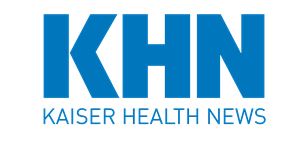
By Kaiser Health News; reported in The Daily Yonder
On July 16, a three-digit number, 988, became the centerpiece of a nationwide effort to unify responses to Americans experiencing mental health crises. But many people, especially those in rural areas, will continue to find themselves far from help if they need more support than call operators can offer.
The National Suicide Prevention Lifeline’s 988 phone number, which launched July 16, was designed as a universal mental health support tool for callers at any time anywhere.
But the U.S. is a patchwork of resources for crisis assistance, so what comes next isn’t universal. The level of support that 988 callers receive depends on their ZIP code.
In particular, rural Americans, who die by suicide at a far higher rate than residents of urban areas, often have trouble accessing mental health services. While 988 can connect them to a call center close to home, they could end up being directed to far-away resources.
The new system is supposed to give people an alternative to 911, yet callers from rural areas who are experiencing a mental health crisis may still be met by law enforcement personnel, rather than mental health specialists.
More than 150 million people in the U.S. — most from rural or partially rural communities — live in places designated as mental health professional shortage areas by the federal Health Resources and Services Administration. That means their communities don’t have enough mental health providers — usually psychiatrists — to serve the population.
The Biden administration distributed about $105 million to states to help increase local crisis call center staffing for the new 988 system. But states are responsible for filling any gaps in the continuum of care that callers rely on if they need more than a phone conversation. States also shoulder most of the responsibility for staffing and funding their 988 call centers once the federal funding runs dry.
The federal Substance Abuse and Mental Health Services Administration, which runs the existing 800-273-8255 lifeline that 988 expands upon, has said that a state that launches a successful 988 program will ensure callers have a mental health professional to talk to, a mobile crisis team to respond to them, and a place to go — such as a short-term residential crisis stabilization facility — that offers diagnosis and treatment. The federal agency also intends for 988 to reduce reliance on law enforcement, expand access to mental health care, and relieve pressure on emergency rooms.
Those objectives may not play out equally in all states or communities.
